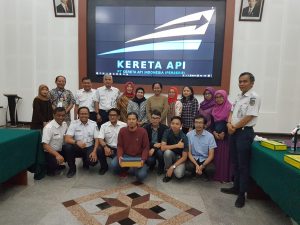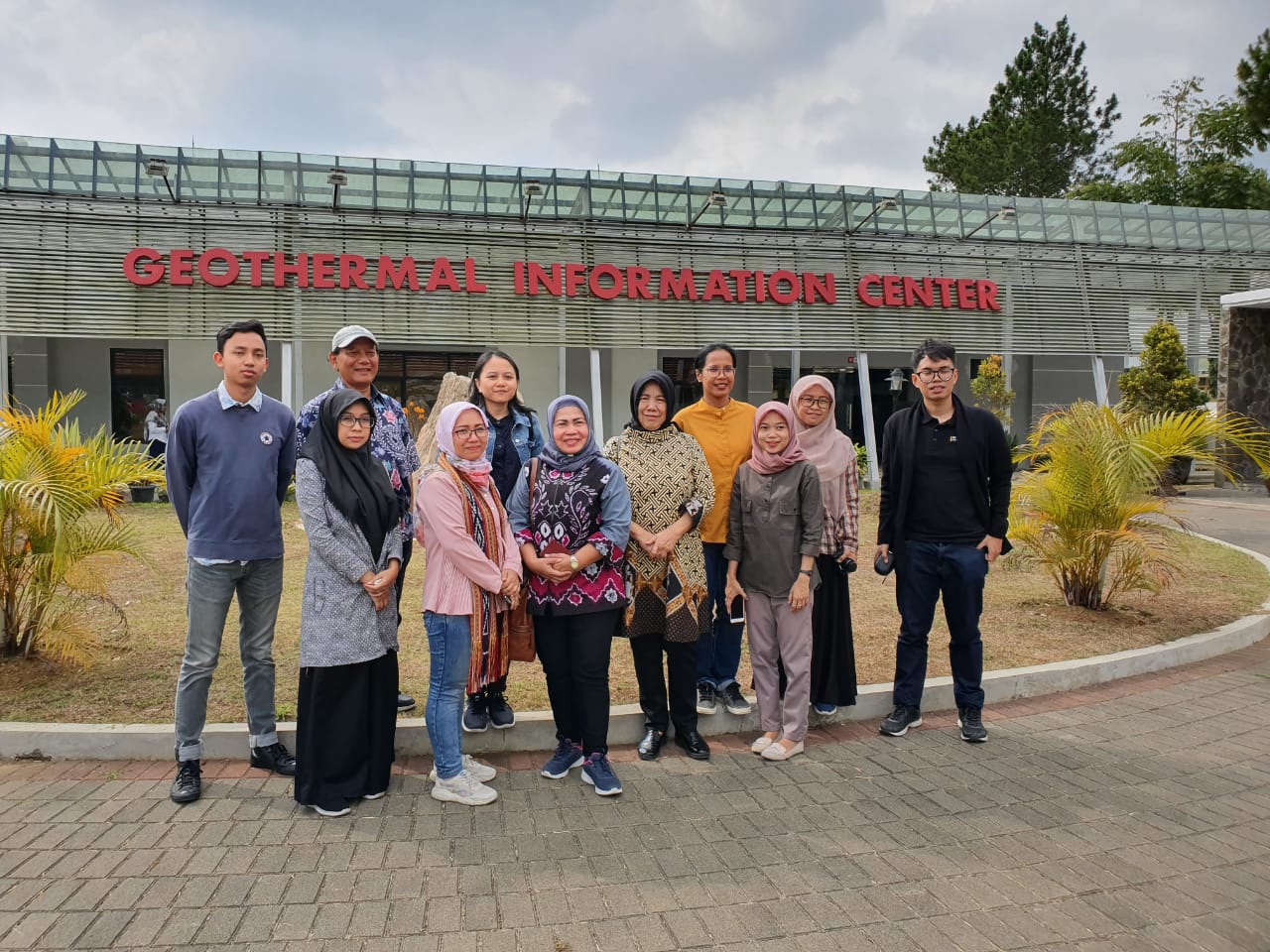On 26 – 27 August 2019, IESR (represented by Julius Christian, Clean Fuel Specialist and Abdilla Alfath, Research Intern) participated in field visit to PLTP (geothermal power plant) Kamojang and PT KAI (Indonesia’s railways corporation) organized by YLKI (Indonesian Consumers’ Organization). The participants included HIVOS, AMAN (The Alliance of Indigenous Peoples of the Archipelago), Koalisi Perempuan Indonesia (Indonesia Women Coalition) and Coaction Indonesia. The field visit was a part of discussion for consumers manual on energy developed by YLKI.
On the first day, the group visited PLTP Kamojang, the oldest geothermal power plant in Indonesia. The power plant has been commercially operational since 1983 and is also one of the largest geothermal power plants in Indonesia with a total installed capacity of 235 MW from its 5 units. An interactive Q&A session with managers at the power plant was conducted, particularly regarding geothermal developments in Indonesia. It was highlighted that the potential for geothermal in Indonesia is the highest in the world and currently Indonesia is only second to the US in geothermal installed capacity. However, it was also noted that there were high risks in exploration for geothermal energy, which drives high capex and difficulty to get financing before a Power Purchase Agreement (PPA) signed. The visit also included visit to a Geothermal Information Centre (GIC), built and managed by PERTAMINA. Visitors can can learn all things about geothermal energy from an expert geologist with various exhibits on geothermal energy. The GIC also has various interesting facilities, such as a mini cinema for geothermal documentaries. The group then continued to visit one of the units of PLTP Kamojang, Unit V. Unit V has a capacity of around 35 MW.

On the second day, the group visited the head office of PT KAI in Bandung. There was a meeting and discussion with directors from various departments. Intensive discussion was centered around KAI’s progress in implementing the use of B20 biodiesel (blending program) for KAI trains. It was highlighted that KAI has so far deployed B20 in 100% of its train and is currently undergoing testing for the implementation of B30. There were several issues noted, such as subsidy for biofuel and the future projection of it (non-subsidy program). KAI has great interests in making its trains consumer-friendly and hopes that it can go greener with the use of biofuel.
The event was insightful to understand more the landscape of renewable energy in Indonesia and its use in transportation sector. It was also nice to know that the journey from and to Jakarta left less carbon footprint as the trains used were run on B20.
Written by Abdilla Alfath, Research Intern, and edited by Marlistya Citraningrum

